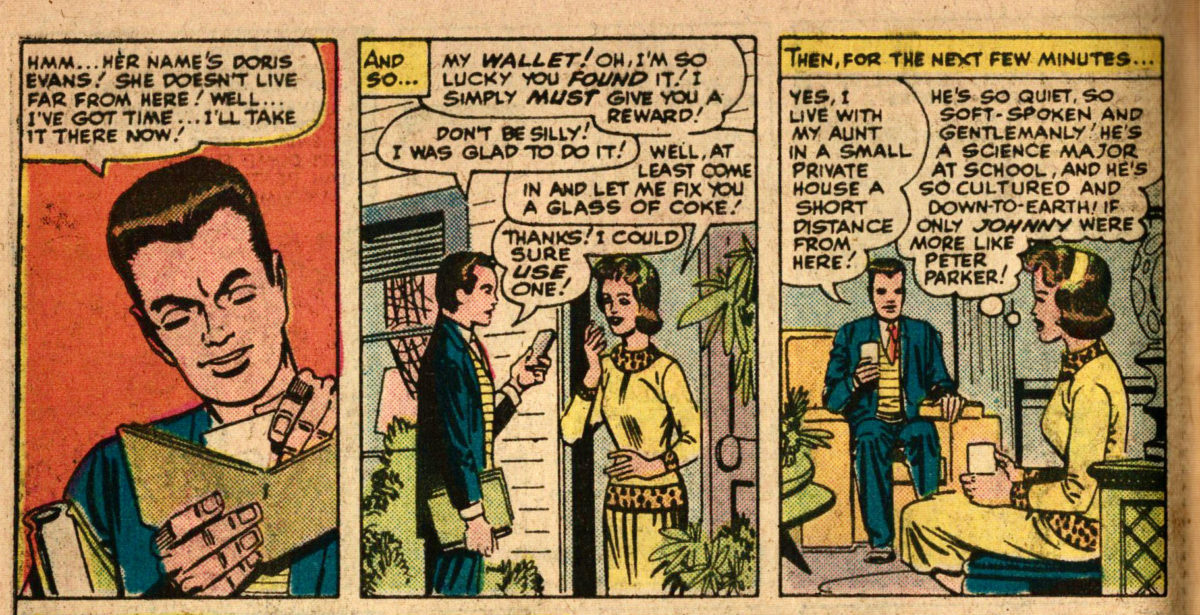Featuring: Fantastic Four
Release: December 10, 1964
Cover: March 1965
12 cents
Proudly produced by: Smilin’ Stan Lee and Jolly Jack Kirby
Inked by: Chic Stone
Lettered by: Artie Simek
21 pages
| Previous | #312 | Next |
|---|---|---|
| Avengers #14 | Reading order | Tales to Astonish #65 |
| Fantastic Four #35 | Fantastic Four | Fantastic Four #37 |
The main credits are shared between Stan and Jack without specifying who did what.

Fantastic Four has been one of the best of these Marvel superhero titles since the start, but it’s regarded as one of the best comic series ever, which hasn’t yet been obvious. The series gets better at some point. It can be hard to pinpoint the exact point of transition. We noted issue 29 when Kirby started using photo collages as a step toward greatness. The introduction of the Frightful Four in this issue also suggests we are well down the path. Particularly the mysterious Madam Medusa.
Sue and Reed announced their engagement last issue. They’ve now made a public announcement, and the press is excited, underscoring their celebrity status. There will be a big engagement party this issue.
Also, I think Sue’s gotten a haircut. Her hair definitely seems shorter.
Continue reading “Fantastic Four #36”





































